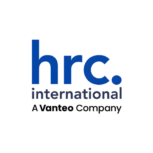Moving abroad for a J1 Visa program isn’t just a career move—it’s a personal transformation. From navigating new cultural norms to managing homesickness, participants experience profound mental and emotional growth. This article dives into how the psychology of adaptation empowers participants to thrive in unfamiliar environments, with support from HRC International.
Why Adaptation Matters in a Global Workplace
In the hospitality industry, cultural awareness and adaptability are crucial skills. J1 Visa participants often find themselves working alongside people from diverse backgrounds and serving guests from all over the world. Learning how to adapt quickly is more than a survival skill—it’s a competitive advantage.
- According to the Harvard Business Review (2015), individuals with high cultural intelligence (CQ) perform better in multicultural settings.
- Adaptability is ranked among the top five soft skills desired by employers.
🌟 In short, learning to adapt during your J1 Visa experience sets you up for long-term success.
Understanding the Stages of Cultural Adjustment
Culture shock is real—but it’s also manageable. Most participants go through predictable stages of adjustment when living and working abroad:
- Honeymoon phase: Excitement and fascination with the new culture.
- Culture shock: Feelings of confusion, frustration, or homesickness.
- Adjustment: Gradually becoming comfortable with the new norms.
- Mastery: Fully embracing and thriving in the new environment.
Research by Oberg (1960) describes this as the U-curve of adjustment. Knowing these stages helps J1 Visa participants normalize their emotions and remain resilient.
How J1 Visa Participants Build Emotional Resilience
Adaptation requires resilience—the ability to bounce back from challenges. Here’s how participants strengthen this skill:
- Practicing mindfulness: Staying present helps manage stress and anxiety.
- Seeking social support: Building friendships at work or in the local community reduces feelings of isolation.
- Focusing on growth: Viewing mistakes as learning opportunities fosters a positive mindset.
A 2021 study in Frontiers in Psychology highlighted that expatriates with strong social networks and proactive coping strategies experience less stress and higher satisfaction.
🚀 How HRC International Supports Your Transition
At HRC International, we understand that adapting to a new culture takes time and support. That’s why we offer comprehensive guidance before and during your stay:
- Pre-departure orientation: We prepare you with everything you need to know before you arrive—what to pack, what to expect, and cultural tips.
- Regular calls with our team: We stay in touch with you throughout your time in the US to check on your progress and well-being.
- Buddy program: This initiative introduces you to other J1 Visa participants living in your area, so you can build friendships and support networks from day one.
These services ensure that you’re never alone on your journey and that you feel confident navigating your new environment.
Read more: Unlocking Your American Dream: HRC International as Your J-1 Visa Sponsor
Final Thoughts: Growth Beyond the Comfort Zone
Adapting to a new culture is challenging—but that’s where growth happens. Through the ups and downs of your J1 Visa experience, you build emotional intelligence, resilience, and cultural fluency that stay with you long after you return home.
At HRC International, we help passionate hospitality participants gain not just professional skills, but life-changing experiences abroad. Our programs guide you through every step, ensuring you thrive both at work and in your new cultural surroundings.
